“Moon Knight” Cinematographer Gregory Middleton on Creating Marvel’s Head Trip
Moon Knight cinematographer Gregory Middleton came to the Marvel Cinematic Universe with considerable world-building experience. He helmed six episodes of HBO’s colossal fantasy series Game of Thrones, as well as three episodes of Damon Lindelof’s fantastic adaptation of Watchmen (also for HBO), so it would be unfair to say he was daunted to take on Marvel’s vaunted, ever-expanding cinematic universe.
Yet Middleton had his work cut out for him with Moon Knight, the first Marvel series on Disney+ not to feature a character already well established in the films. That character, Oscar Isaac’s Steven Grant, contains multitudes. As Steven, he’s a quirky, decidedly unheroic British museum giftshop employee and budding Egyptologist, but as Marc Spector, he’s an American mercenary who moonlights as Moon Knight, the superhero avatar of the Egyptian god Khonshu.
We spoke to Middleton about going darker in Moon Knight than any previous MCU installment, the joy of capturing great performances, and how the entire series was hidden in a fish tank.
Unlike the previous Marvel series on Disney+, Moon Knight is introducing characters we’ve never seen in an MCU film, led by Oscar Isaac’s Steven Grant/Marc Spector/Moon Knight. How’d you approach that?
First, it’s exciting to have a new character where you’re not beholden to previous incarnations. The second thing is this character has a lot of elements that Marvel hasn’t really applied before. There’s more of a psychological horror element to the show, of not knowing what’s real and what’s not. Moon Knight is looking more deeply into the interior mind of this character, and the childhood trauma that created him. There was an opportunity I sensed to be able to adapt our filmmaking to that point of view, and you see that in how the episodes represent different genres.
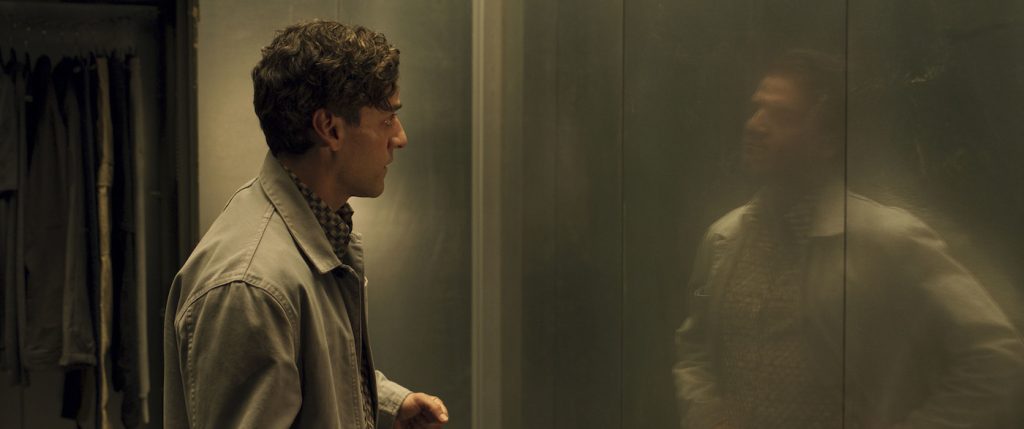
Episode one in particular really feels like a horror movie.
Episode one is kind of a horror movie and Steven Grant is essentially being haunted by this unknown thing, so we can shoot it that way. My director, Mohamed Diab, was intent on trying to keep a point of view in each episode and each scene. So we tried to anchor the camera to Steven, experiencing everything from his disoriented point of view, so the audience is just as disoriented as he is. This creates a very immersive filmmaking journey, hopefully.
What are some of the methods you use to create disorientation for the viewer?
One thing is we use a lot more darkness. There are a lot of unknowns in Steven’s story, and there are a lot of questions about what is reality. I wanted to play with the idea of using parts of things you can’t see and using real black elements in the frame. There’s an interesting moment in the pilot when Steven runs out of his apartment after hearing a voice speaking as Marc from the mirror. He’s totally terrified. He gets into the elevator and he ends on the second floor and it’s all black, there’s just nothing out there at all. It’s just a void, which is a great way to express that he really knows nothing, and who knows what’s out there. So these kinds of visual things that we were able to do and which we haven’t seen that much of in the MCU so far.
How did you balance the narrative demands of a show that looks at Steven’s mental health issues, Egyptian mythology, Marvel mythology, and just the basic demands of visual storytelling?
We all discussed this as a team with Mohamed, but we wanted the audience to know where they were, to have visual cues for color to help them decode something. Because Moon Knight could be potentially very confusing, and it gets pretty trippy later on in the series, especially in episodes four and five in the hospital. We’re trying to create a visual palette that’s identifiable and interesting, that all go together with the flow of the story. You want to be aware of the transitions on the journey.
The hospital became such an important location, with Steven/Marc coming face-to-face, literally, with the various realities of their situation.
It’s a place of terror in episode four, but by the end of episode five, the hospital is kind of a safe space. On the other hand, I was very tempted to make young Marc’s bedroom, where we reveal his mom has been abusing him, very cool, but I had to be sure it contrasted well with the asylum and Doctor Harrow (Ethan Hawke)’s office.
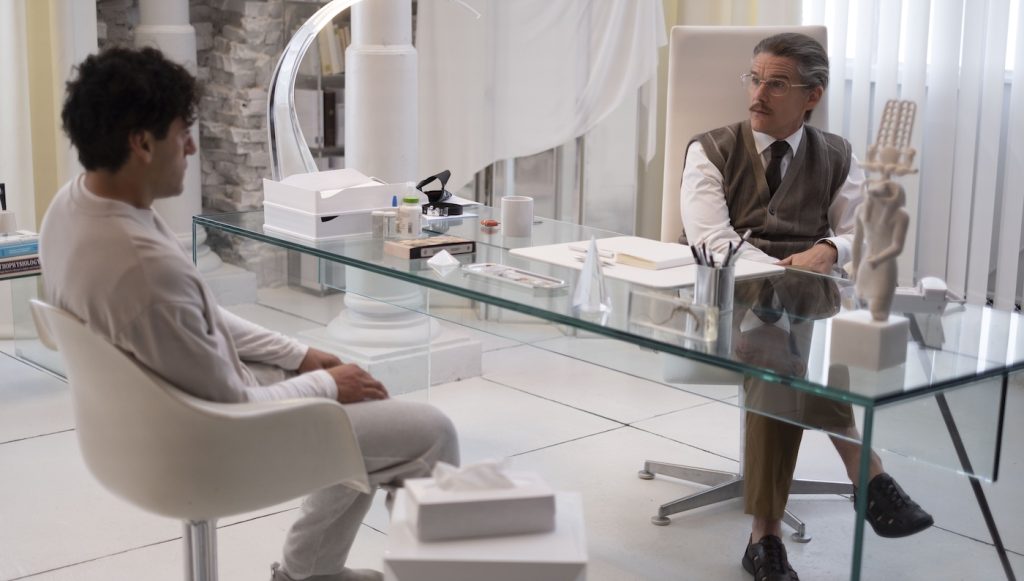
So we have very dark spaces, very white spaces, but then other colors pop in the show.
Gold was an important color for us. There’s a lot of gold in the costumes of our avatars, and gold is a big part of Egyptian mythology. We put gold into a lot of those spaces, and I lit certain scenes with gold light. There’s gold in the restaurant in the pilot, as well as red, and then we use red again at Anton Mogart (Gaspard Ulliel)’s place.
Do the colors tie back to Steven/Marc’s central struggle with which one of them is real?
Yes, sometimes colors repeating in various sets was useful because. For example, when you dream something, you pull from your experience in real life. The images of scenes you experienced pop up in dreams, you may think they’re original, but they’re things you experienced. So for example, with the fish tank in the pilot, if you look at it very carefully, you’ll see the entire Duat [the place where the dead and their souls go for judgment in Egyptian mythology], the pyramids, the gates of Osiris, and the Khonshu temple—it’s all in there. So let’s just say if he’s imagining all of that, which came first? Did he put that stuff in the fish tank because it happened for real, or, did he imagine it all because that stuff was in the fish tank?
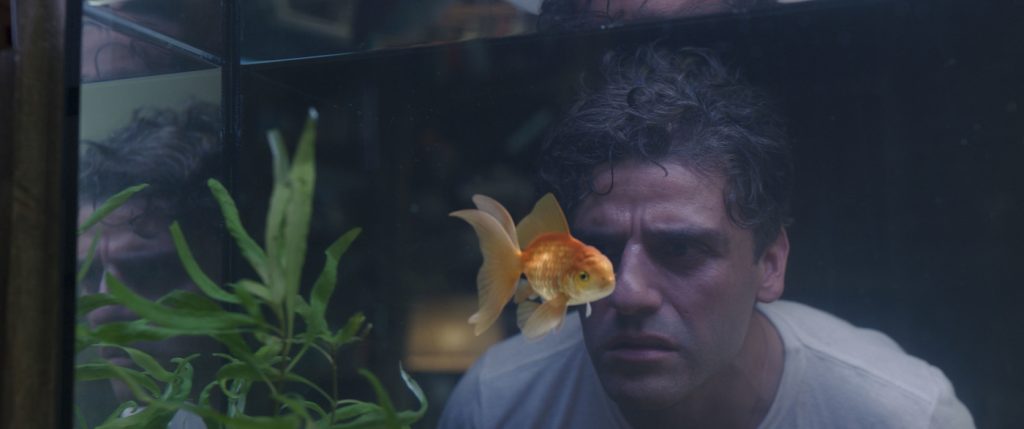
Speaking of things that aren’t real—how do you approach filming scenes that include characters that will be entirely rendered by CGI, like the goddess Taweret, whose depicted as a bipedal hippopotamus?
More and more things are done with pre-visualization. These are computer-generated visual animatics created by a pre-viz team. So as a cinematographer I just make sure I’m involved with developing those ideas as early as possible. If we’re going to play with where the camera is and point of view, then that’s a conversation I feel I really need to be involved in. I’ll approach these storyboarding meetings the same way I would on set with Mohamed or an actor or a stunt person, suggesting things, but in this instance, I’m just doing it virtually with the pre-viz team. Then during filming, Antonia [Salib, the actress who plays Taweret] is hilarious, right? She’s a great actor with an amazing voice, and Taweret’s mannerisms are all her mannerisms. So you do your best to capture the best performance because performance drives everything. Even if you lit an amazing shot, it doesn’t really mean anything if the performance is not there. So capturing Antonia’s performance, even though she was going to be essentially replaced by the CG character, was very important.
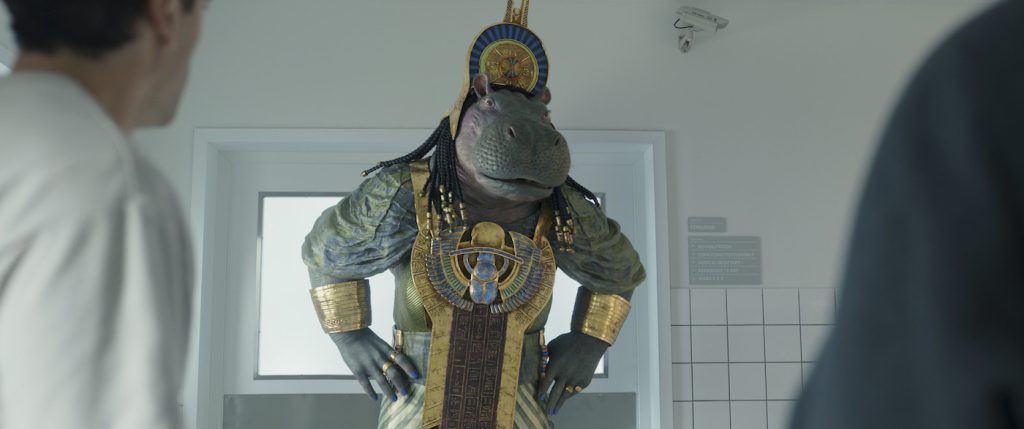
Speaking of capturing performances, Moon Knight is fueled by Oscar Isaac’s remarkable portrayal of Steven/Marc. Were there any sequences you shot that were most challenging, or memorable?
Well, we begin with Steven and Marc at odds, and Steven hates him, and by the end, Steven has this incredible sympathy for Marc and is the one person who can actually forgive Marc. When Steven watches Marc become Steven on the street after his mom’s funeral? You’re seeing Marc at rock bottom. He’s completely broken down in grief. And watching Oscar playing Steven watching Marc becoming Steven? It’s amazing. When I read this scene I was absolutely terrified, because to do twinning scenes in an exterior setting is difficult, because you have to capture the weather exactly the same, and you’re praying it doesn’t change too much between takes. Yet it went seamlessly, and when we were shooting the scene, I was like, ‘Oh my god, this is going to be so moving.’
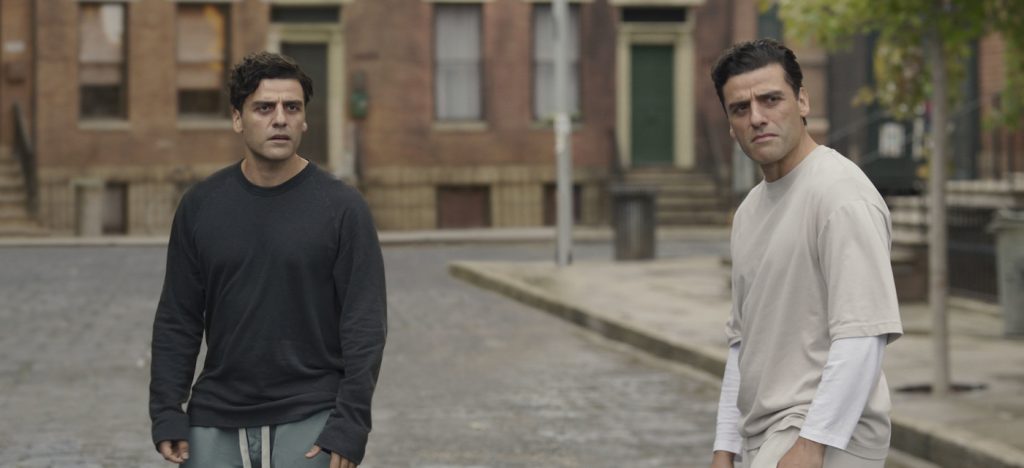
For more on Moon Knight, check out these stories:
“Moon Knight” Composer Hesham Nazih on Capturing the Sounds of Ancient Egypt, Modern Cairo, & Marvel
“Moon Knight” Costume Designer Meghan Kasperlik on Minting a New Marvel Superhero
“Moon Knight” Early Reviews Highlight Fresh, Funny, & Ambitiously Unique Marvel Series
Featured image: (L-R): Oscar Isaac as Steven Grant and Taweret (voiced by Antonia Salib) in Marvel Studios’ MOON KNIGHT, exclusively on Disney+. Photo courtesy of Marvel Studios. ©Marvel Studios 2022. All Rights Reserved.



